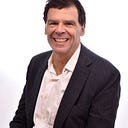My colleague Glen Grant was there for far longer than Baud. The founder of a Ukrainian tech startup I invested in (with regret), Sam P.N. Cook lives in Kyiv, taught military history at West Point, is married to a Ukrainian and did two tours in Iraq turning insurgents into informants by writing letters. Listen to Borderlands podcasts on his Facebook page.
Ukraine had access to open source US intelligence and knew war was coming. The increase in shelling was an effect, not the cause of imminent invasion. Public denials of imminent invasion were a keep calm and carry on measure designed to avoid panic. Think of it as a better to ask for forgiveness than permission public policy measure. A surprise invasion made it more like Pearl Harbor for the US, fostering more intense resistance.
Putin had already decided on invasion the previous autumn or July. The letters from the FSB published by Vladimir Osechkin and Igor Suchko prove this. The FSB's bosses told all the analysts to tell them what Putin wanted to hear. It was similar to the corrupt politicization of intelligence analysis in the runup to the Iraq war in 2002-03.
That was the source of Russian occupation functionaries talking to each other about choosing the apartments they'd occupy in central Kyiv instead of anticipating effective Ukrainian resistance.
Baud sees the trees, but not the forest.
He too writes with ahistorical ignorance of Russia's long history of genocidal conquest and needs to take Tim Snyder's course. He too conflates Russian speaker with Russian national identity.
Ukraine had the same right to suppress a secessionist rebellion sponsored by a neighboring power as the USA had to defeat the Confederacy, which was supported by the British Empire. Baud shares your unconscious prejudice that Russia's status as a state is automatically non-contingent, while Ukraine's sovereignty as a state is contingent and negotiable. This is geopolitical bigotry at its finest, and the product of US and European universities having thousands of Russian history courses, and only one Ukrainian history course: Tim Snyder's.
